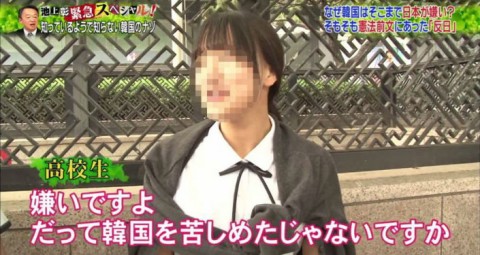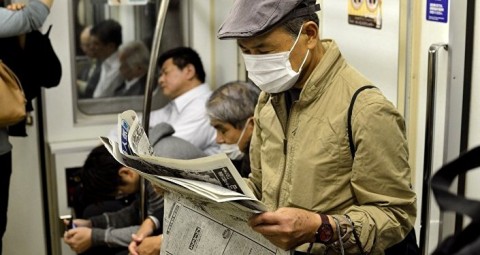image: 1
Former Russian Ambassador to Japan Panov: Although Prime Minister Abe Made Apology and Attack on Press is Stopped, Danger of Japanese Militarism Still Remains
This is a penetrating comment by former
Russian Ambassador to Japan Panov. I think this is true. It has become
well-known even overseas that a powerful organization behind the Abe
administration is the Nippon Kaigi (Japan Conference). Although we had difficulty
controlling this organization, we have finally made it. If my intuition is
right, I think that Sino-Japanese war and undesirable amendment to the
Constitution have barely been avoided.
However, things will inevitably move in
this direction. It is as if you could not immediately stop a gigantic warship.
All you can do is to gradually change the direction by turning the rudder.
The Nippon Kaigi, the Shinto Seiji Renmei
(Shinto Association of Spiritual Leadership) and other right-wing organizations are associated with various religious groups including Shintoism.
They have been deeply influenced by the secret society with Plotinus at the top,
which was supported by SaLuSa. As they have been removed at last, we will
clearly see the effect caused by it.
Masatoshi
Takeshita
July
4, 2015
English translation of the excerpt from the Japanese version of Sputnik – July 4, 2015
Former Russian
Ambassador to Japan Panov: Although Prime Minister Abe Made Apology and Attack
on Press is Stopped, Danger of Japanese Militarism Still Remains
Prime Minister apologized
to the Okinawa people over the remarks by several young LDP lawmakers who
appealed for pressure on Okinawa-based newspapers, which agreed with reduced appearance of
the U.S. military forces.
“The remarks at the study group meeting
were extremely inappropriate. To the people, I feel sorry for the people. The
remarks will bring to nothing our many-years’ efforts to promote Okinawa and
reduce the burden on Okinawa over U.S. bases. I apologize if the remarks hurt
the feelings of people in Okinawa.”
What has made Prime Minister Abe apologize?
The radio “Sputnik” has asked this question
Mr. Alexsander Panov.
“As far as I know, criticism against the
young lawmakers has been widespread. These lawmakers simply overtook a
locomotive and ran far ahead. I think the remarks are talked about in the
party. Therefore, Mr. Abe had no choice but to make a slight concession.”
Q: Can we say that his apology will help
apply the brakes to attack on freedom of Japan’s mass media?
A: “Of course, all the leadership of the
Japanese government party does not agree to strengthen the control of the
press. Additionally, I don’t think that the Abe administration want to have any
other problem other than the collective self-defense issue. If the backlash
against the drift to the right of Japanese politics is heightened, the
government will be burned in dual fire. The government does not want it.”
Q: The remarks by young LDP members have
aroused criticism. Will it help pacifism to gain
momentum or help the trend toward nationalism to be overcome?
A: “These two
trends of pacifism and nationalism will live together with and fight with each
other. The anniversary of the defeat of the war and the anniversary of
the A-bombing are approaching. These anniversaries will make pacifists a big winner, while nobody has doubt about adoption
of the collective self-defense right by the LDP. Like this, these two
trends will continue to fight with each other and they are factors of domestic
politics in Japan now.”
Q: When the
collective self-defense right is adopted, how will Japanese society respond to
it?
A: “I think that probably,
such large-scale violent waves as seen when military cooperation with
the U.S. was renewed in the 1960s will not be caused.
Japan has no movement against war. Of course, there can be individual
demonstrations. However, you will not see any large-scale campaigns against the
use of the right covering the whole of Japan, I think.”
Q: Does it mean
that Japan will make a directional change to strengthen nationalism and militarism?
A: “This is inevitable.
Considering that particularly, China has persistent policies
and Russia and China have started building an actual strategic alliance in
politics and economy, though not military, it is
inevitable. Japan still has a lot of problems at home. As always, nationalistic slogan would be aggressively used to
mobilize the people. However, there is an
alternative, of course and it is to develop warm relations with its neighbors
of China and Russia. This would cut off the momentum of anti-Japanese
tide of China and Russia, if there is.”




Leave a Reply